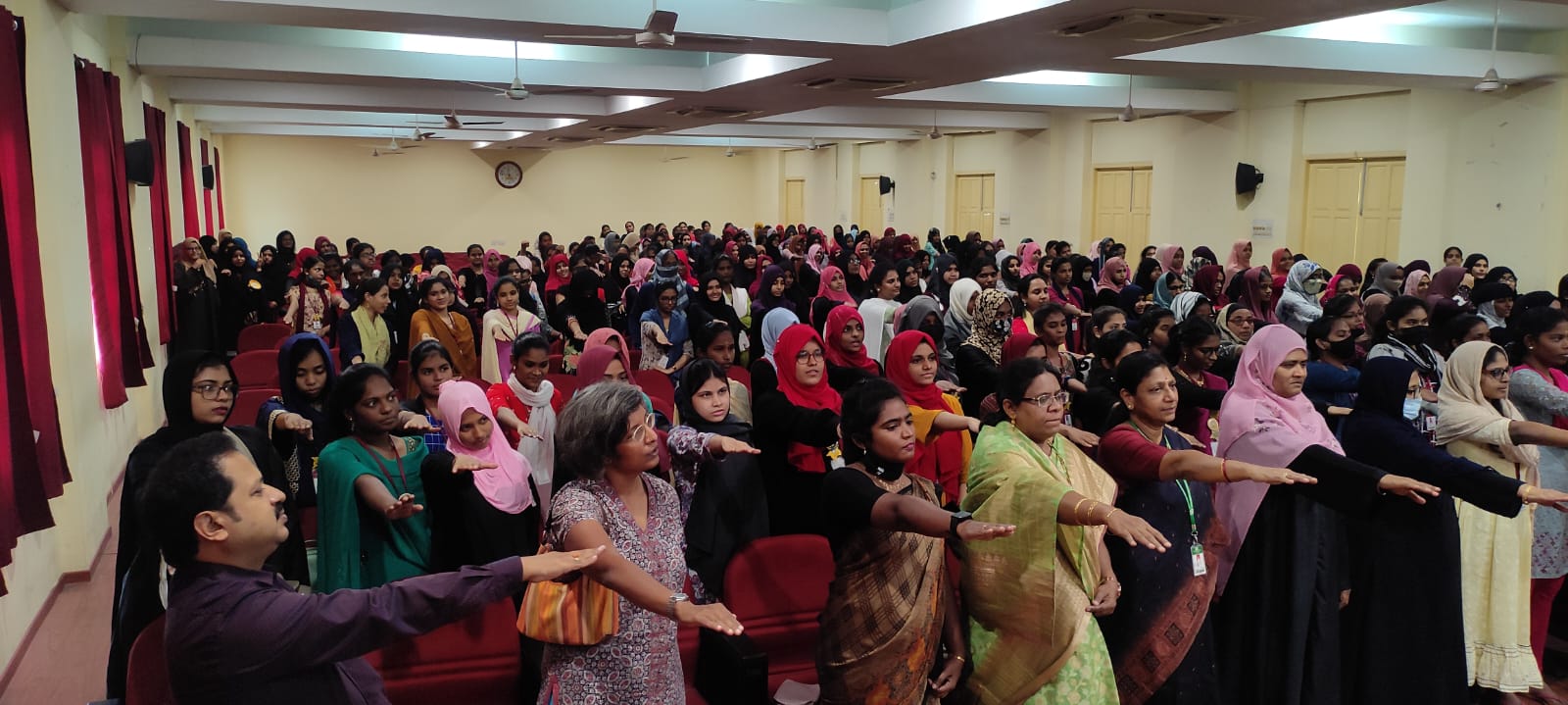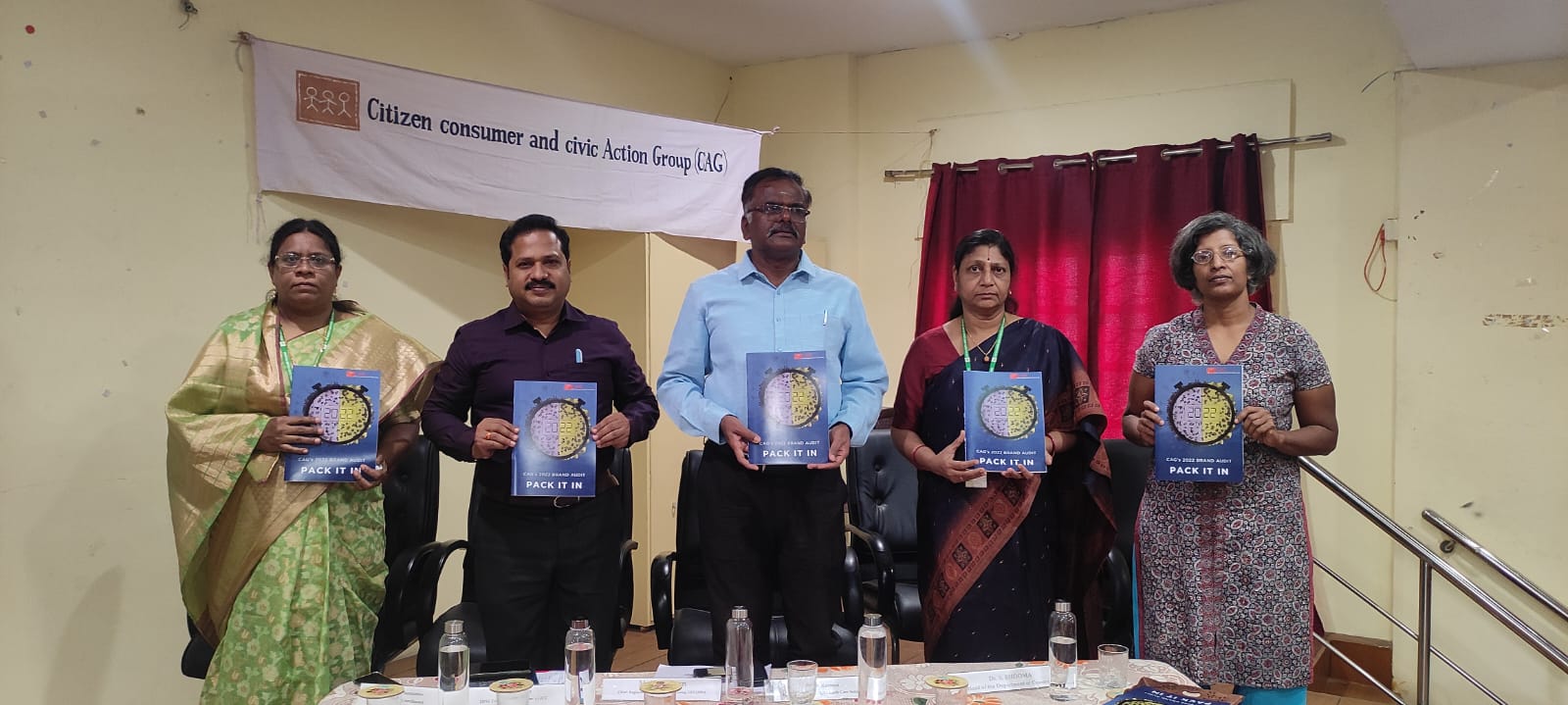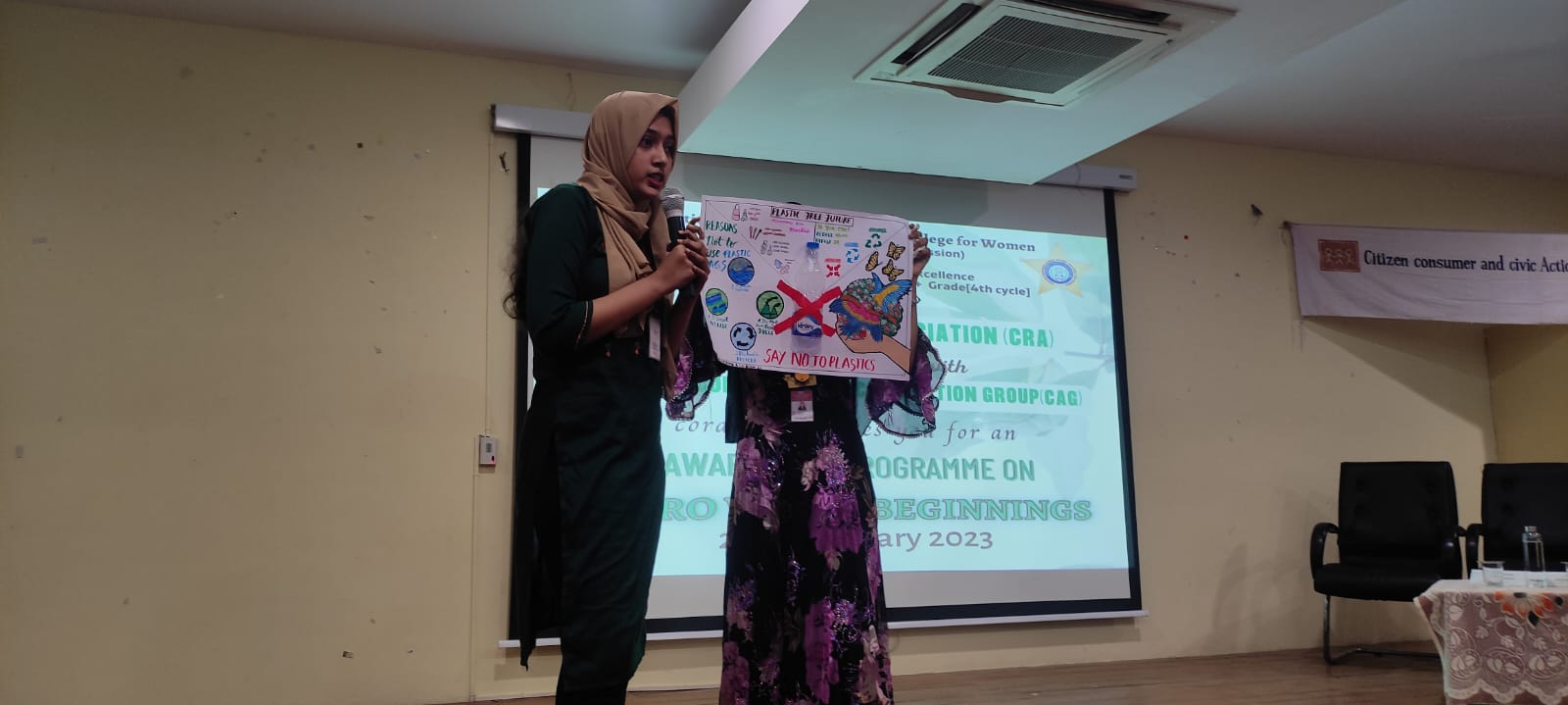In light of the Global Alliance for Incinerator Alternatives’ (GAIA) Zero Waste Month observed in January, Citizen consumer and civic Action Group (CAG) in collaboration with Justice Basheer Ahmed Syed (JBAS) College, Chennai conducted an event ‘Zero Waste Beginnings’. The event was aimed at college students, to help build an awareness of zero waste lifestyles and understand the overwhelming menace of solid waste, especially plastic waste. The guest speakers were Mr.N.Mahesan, Chief Engineer, Solid Waste Management & Town Planning, Greater Chennai Corporation (GCC), Dr.B.Asha Latha, Zonal Health Officer, Zone 9, GCC and Mr. Natarajan, Founder of PUVI Earth Care solutions. During the event, CAG’s 2022 Brand Audit report was officially released by Mr.Mahesan. The event also included interesting competitions for students as a way to engage them and help them learn about the ill-effects of plastics.
Dr.Asha Latha gave an introduction about the state level and national level ban on single-use plastics (SUP). She explained how despite the ban, SUPs are still widely in use, particularly the everyday items such as plastic coated disposable tea cups, plastic carry bags, etc. Dr.Asha elaborated on the various health issues that people face as a result of plastics getting mixed in the food chain. She discussed the practical problems that the GCC faces in managing solid waste due to the overwhelming usage of SUP. She appreciated CAG and JBAS for ensuring that no SUPs were used during the event. She requested all students to cooperate in following the ban on SUP and take this message home to their families as well.
Mr.Natarajan, founder of PUVI Earth Care solutions introduced himself and his enterprise. He told the students that he was working in a high paying job in the IT sector in the USA until he strongly felt the need to work towards something meaningful to contribute to the environment. He explained the work done by PUVI Earth Care solutions and his non-profit Namma Ooru foundation. He actively interacted with the students by posing questions such as whether plastic is a boon or a bane. He explained that plastic was a great innovation and a boon until humans turned it into a bane. He explained the problems with SUPs which embodied the disposable, ‘use and throw’ attitude in the minds of the people. He explained that manufacturers of plastics and the fossil fuel industry encouraged people to use SUP quoting hygiene and safety reasons. He elaborated in detail about how plastics have penetrated every aspect of our ecosystem, causing lethal harm to marine animals, terrestrial animals and birds, human beings and even an unborn foetus.
He explained the different types of waste generated in households and urged the students to segregate. He emphasised that only when segregation at source is followed can waste be used as a valuable resource by composting, recycling, reusing and refurbishing. He introduced the concept of zero waste and why it is necessary to adopt this model. He explained that while there are solutions to deal with wet waste and dry waste, the amount of waste generated in Tamil Nadu, particularly in Chennai overwhelms the capacities of waste management plants and facilities in existence. Therefore, all kinds of waste which is most often mixed, ends up without any segregation or treatment in open dumpyards. He talked about the state of the open dump yards in Perungudi and Kodungaiyur in Chennai and the adverse effects it has on people living in the neighbouring localities. He explained that this is why the primary solution has to be to adopt the zero waste model and learn how to be circular while dealing with our waste.

Figure 1: Students and teachers taking an oath to segregate and refuse Single-Use Plastics
Mr. Mahesan made a presentation about how GCC is managing waste in Chennai. He mentioned some alarming figures about how much waste is generated in the city of Chennai in one day. He explained that waste collection, treatment and disposal has been outsourced to a private company, Urbaser Sumeet for 7 out of 15 zones in Chennai. He explained the various initiatives that the GCC has undertaken to ensure that waste is used as a valuable resource to the best extent possible. He played videos which gave the students an understanding on the journey of the waste they discard after use. He explained how biodegradable waste is composted and sold to farmers for reuse as manure and also to produce biogas. He emphasised that the citizens’ cooperation is desperately needed since segregation at source will alleviate the burden of the GCC and the conservancy workers who have to manually sort through mixed waste. Finally, he asked the students to take an oath along with him and other speakers to say no to single-use plastics and to segregate waste at homes and in their college.

Figure 2 : Release of CAG 2022 Brand Audit report
Following the speakers’ presentations, Mr. Mahesan and other speakers released CAG’s 2022 Brand Audit report. The Brand Audit was originally designed and developed by Mother Earth, Greenpeace Philippines, GAIA, and CAG in 2018. It is a citizen science initiative led by Break Free From Plastic which has subsequently spread across the world with 440 brand audits conducted across 45 countries in 2021 alone. A Brand Audit attempts to identify the top plastic polluter companies through a waste audit by collecting plastic trash in a sample area and analysing the data in terms of manufacturer, type of plastic, recyclability, purpose of use, etc. The concept of a brand audit and the methodology was explained to the students and they were also encouraged to conduct informal brand audits in their homes to understand which brand occupied the top position in their homes. The students were also briefed about the top polluters, different types of plastic and its recyclability.

Figure 3 : Students exhibiting their posters and reels for the competition
Two activities were conducted for students on the theme of a plastic free future. One was a ‘reels’ contest where the students were asked to create 30 second instagram reels demonstrating how it is possible to eschew plastic in their daily lives and adopt alternatives to SUP. The other was a poster making contest where the students were allowed to let their imaginations run wild on how a plastic free future would look like. The students presented their reels and posters and the speakers judged them based on creativity, understanding of the harmful impacts of plastics, the need for alternatives to SUP, importance of biodiversity and the aesthetic factor. Cash prizes were distributed to the top 3 winners of both the contests.